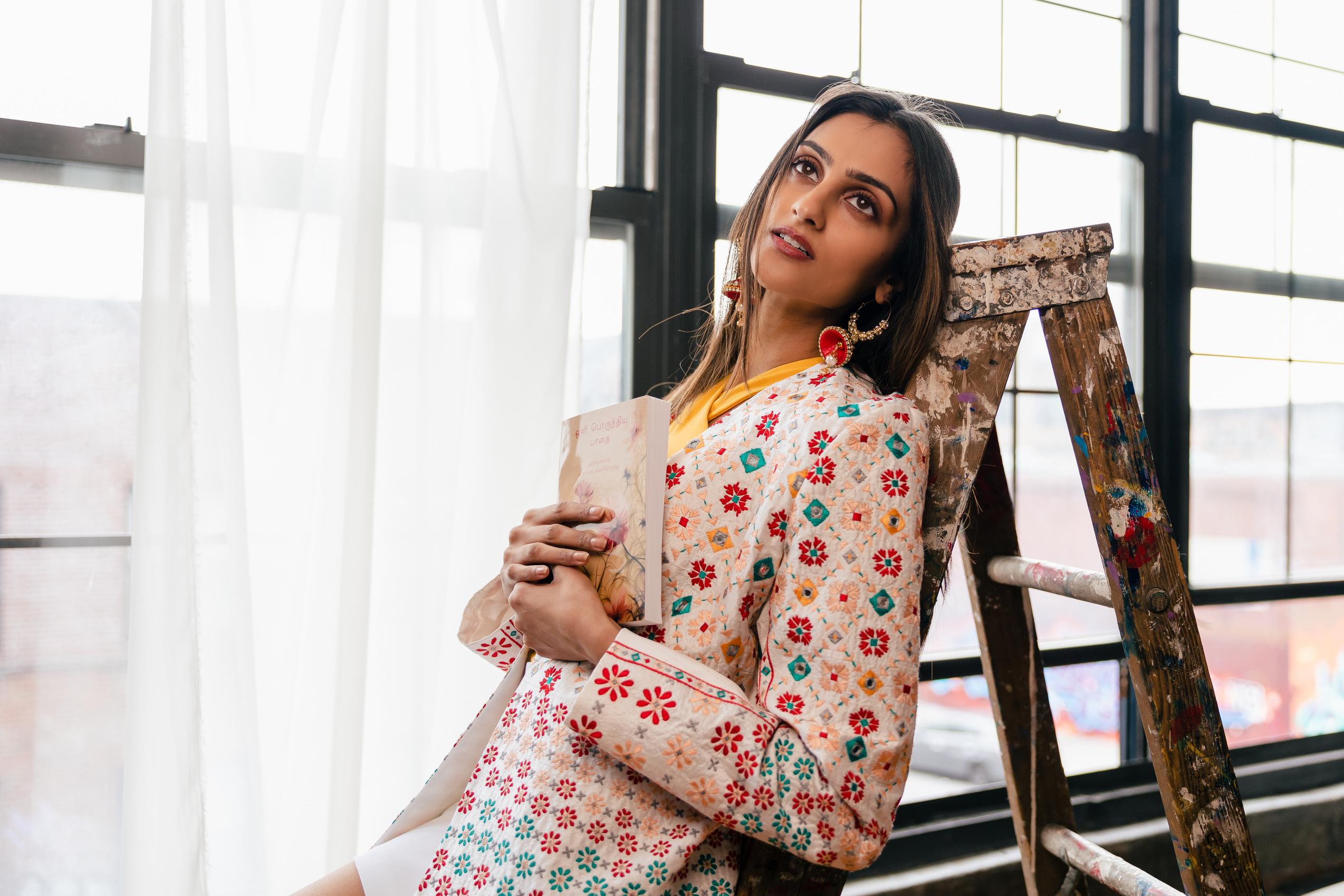
12 minute read
WHAT WAS THE TRANSITION LIKE?
I think it was pretty sudden - the opportunities exist out there; you just have to be willing to commit the time I think what happens is, if you have other obligations going on, it's very hard to do castings, self-submissions, and be taken seriously by your agencies. I signed with another agency, Arizona Model Management, and they placed me at agencies all across the country I’m now signed in 16 states This week I've had shoots every single day I just came from one right before this. We have our shoot tomorrow, but I also have another eighthour day tomorrow as well. I'm really looking forward to Monday because it'll be my first day off in a month of just constant back-to-back work A lot of that is because of Fashion Week - I had either a show and a fitting or two shoots or two shows. Everything was stacked. For the last solid month, I've been very drained, but so grateful for it all because it really is my release It’s what has allowed me to be so stable in my mental health I think without modeling, I would struggle a little bit because modeling forces me to keep my physical, mental, and emotional health in check. I think this profession allows me to be the best version of myself.

Advertisement
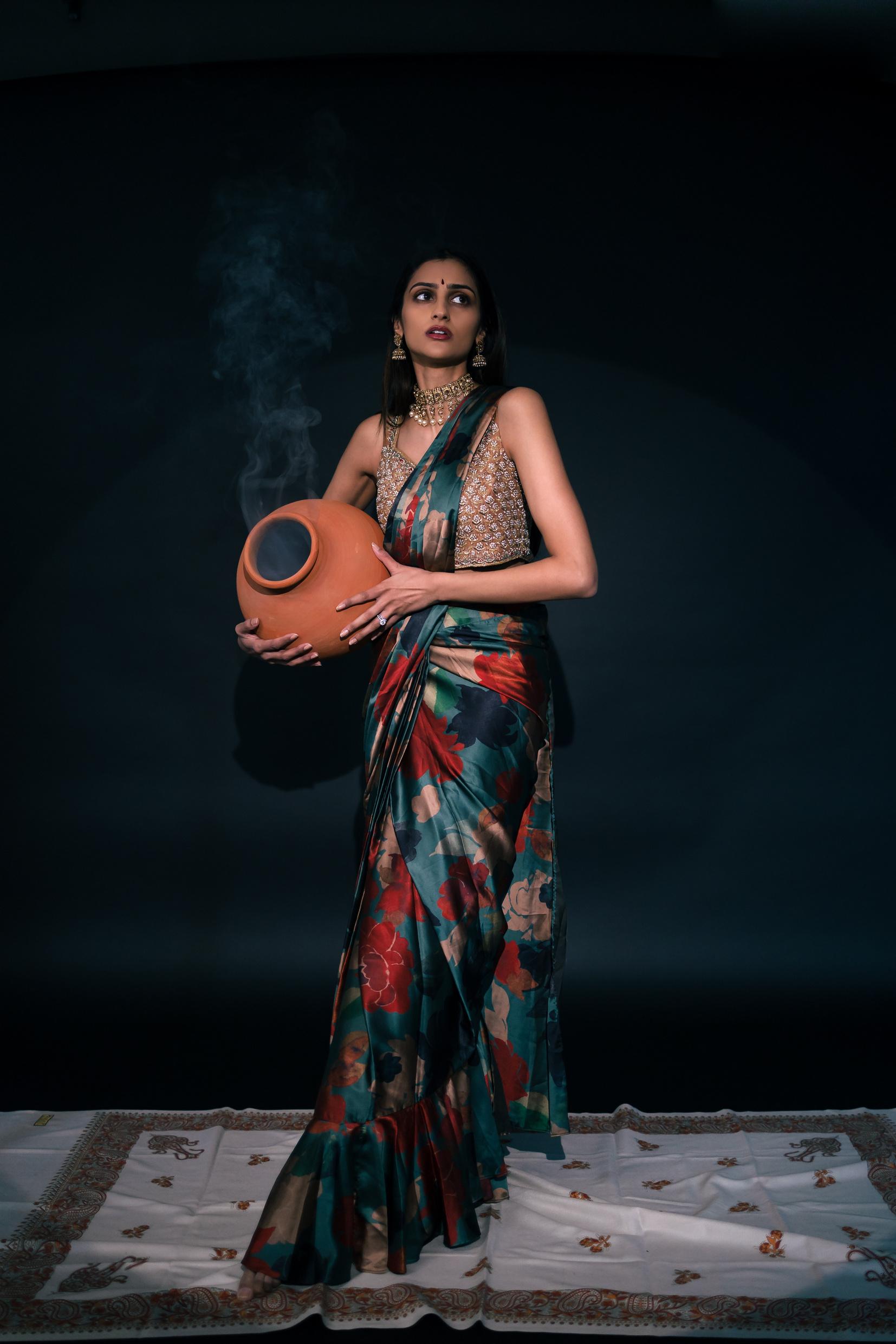
I've struggled a lot with my mental health in the past, and so finding a way to kind of address each component of the struggles that I had within my mental health has been a huge part of the journey and my success today I think there are a few techniques that have been really valuable for me that have helped me be successful in this space I think when you are a model, a huge problem is, because you are your product and you hear ‘ no ’ every day, you can't take it personally So they're asking you to separate yourself from the product and mentally, that's kind of a mess. I think a lot of models talk about this struggle and this shift, but I think being South Asian in this space is already such a rare quality that I'm just grateful to be in the casting and to be considered for an opportunity The more South Asians there are in this space, regardless of what profession they choose (hair/makeup, set design, videographer/photographer), the more we are able to normalize the creative industry and build on our subconscious bias So for me, even if I hear no, I'm like, ‘Thank you so much for even looking at me, for looking at my pictures and for allowing me to do this casting." It's a huge deal I get to be in the room because South Asians are still are a very directional choice for many casting directors and brands.
HOW DO YOU KEEP IT ALL IN CHECK?

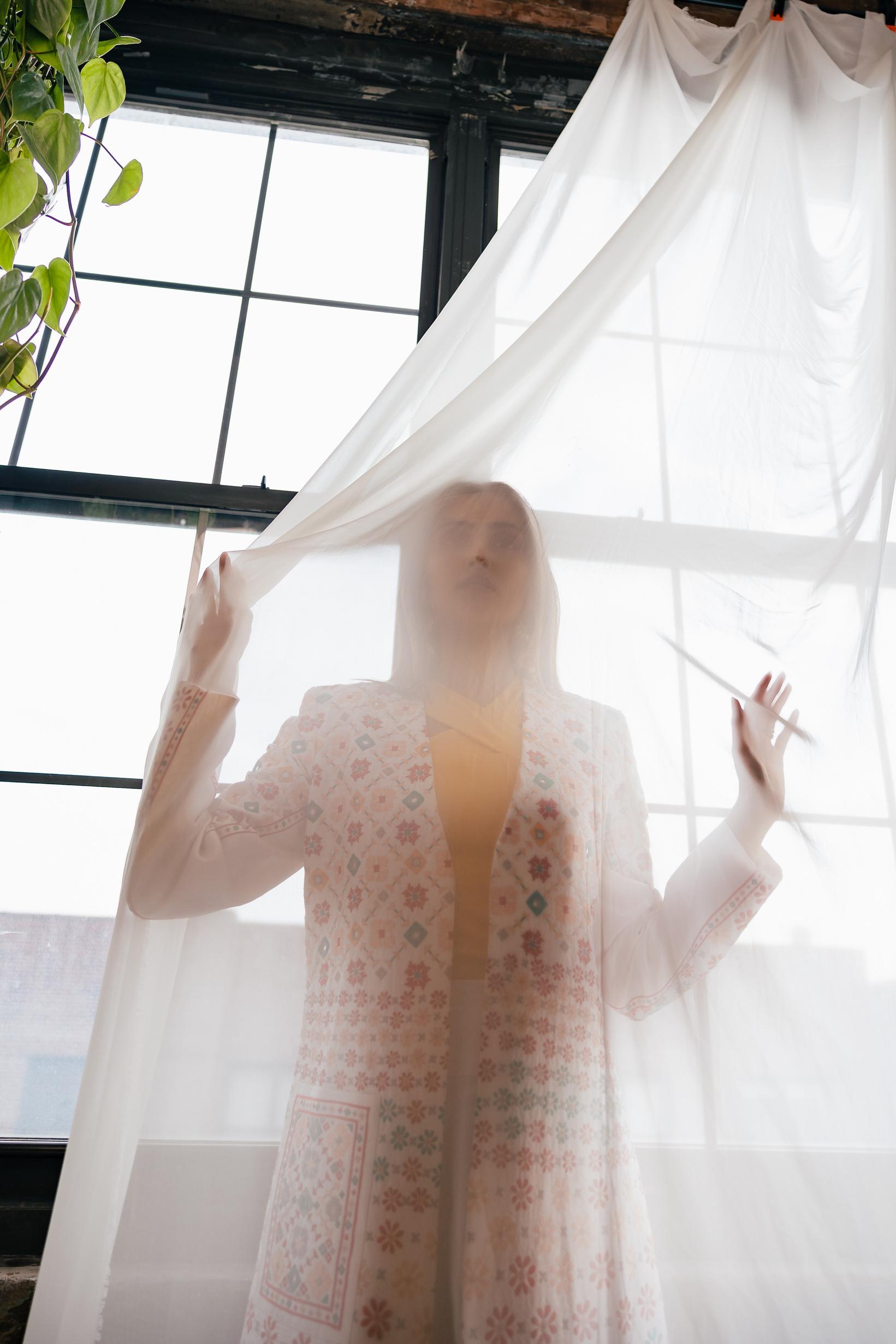

My symptoms started when I was about 15-16 years old, and it's almost like they came out of nowhere. I think that's one of the problems with mental health: a lot of people don't understand what depression can really be For me, it felt like a chemical imbalance, like there was nothing wrong in my life - I grew up fairly well off I have a great relationship with everyone in my family, and I was a happy kid I maybe didn't have any friends at all in school, and I ate lunch underneath a staircase most days alone, but I had my Indian friends outside of school that I grew up dancing with I had balanced activities in and out I had interests and hobbies, I loved going to school, learning and doing homework, etc. So, I mean, I wasn't, like, an unhappy kid. There wasn't really anything that happened to me that would have warranted those types of depressive symptoms When I say depressive symptoms, I'm talking about the feeling of just a whole heavy weight on your body, feeling hopeless, feeling like there's nothing to look forward to, feeling like no one cares about you, and just feeling a sense of, 'Why me?'
I got a really bad knee injury and ended up on crutches for months.
My mom ended up getting tuberculosis She was in the ICU for 17 days, and her recovery was about six months We had the health department coming to our home every single day to watch her take her pills
Then my grandpa got pneumonia My grandparents lived with me - my grandma still lives with me My grandpa is no longer with us, but in his final days, I was one of his predominant caretakers. I had to carry his collapsed body into my mom's Toyota Sienna to get him to the hospital. All while I was still injured, I actually had mono as well, so I felt very fatigued I skipped about a quarter of my junior year just because I couldn't do it all
I had a license, so I was in charge of carpooling three kids and had to pick up those duties because my grandpa was sick. I was getting the groceries, taking care of the house and people, and it was a lot for a 16-year-old. Additionally, I wanted to go to medical school, and there are a lot of prerequisites, like volunteering, shadowing, and researching I wasn’t taking care of my physical, mental, or emotional health and was just very miserable I felt like I didn't have good relationships with friends because it was so hard to maintain it all
When going to college, I lost about 15 pounds - I was only about 100 pounds, to begin with, so I wasn't fitting into even, like, 23-size jeans, which is usually the smallest size a brand might make. So I was really struggling with even just putting on clothes in the morning I would be so weak that if I had a multivitamin, I would throw up I could not get myself to go to classes If it was mandatory, I would get my body up and out because I had to Other than that, I was just really struggling with my health - either the people around me didn't know, or I wasn't sharing enough about it, or maybe they thought I was being dramatic, but I would tell my mom that I was struggling. Because she was obviously sick herself still, I just didn't have much support that way. The reason I even chose the med program that I was in was because it was a five-minute drive from my brother's school, and I could continue to help pick him up and drive him when needed



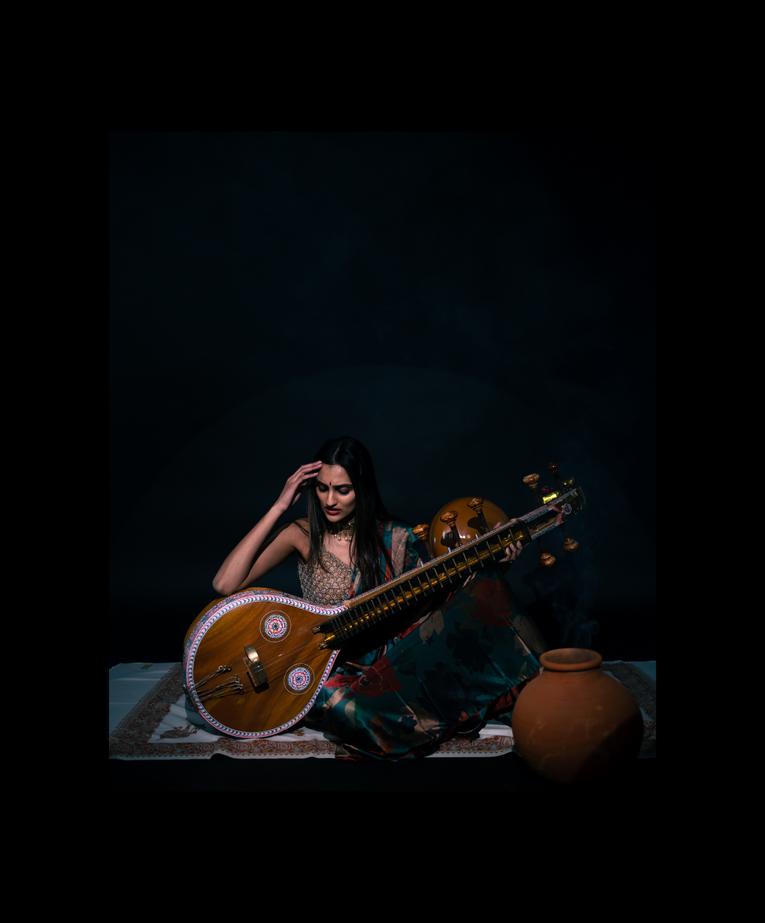

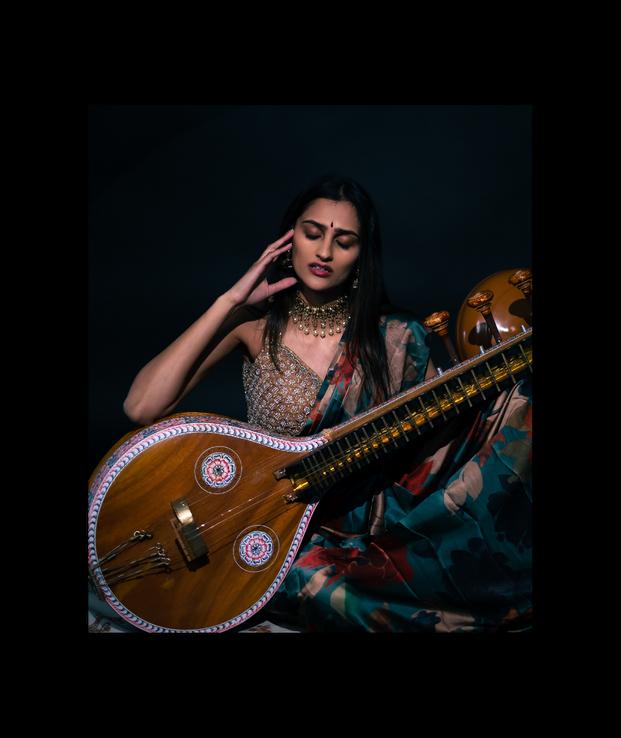









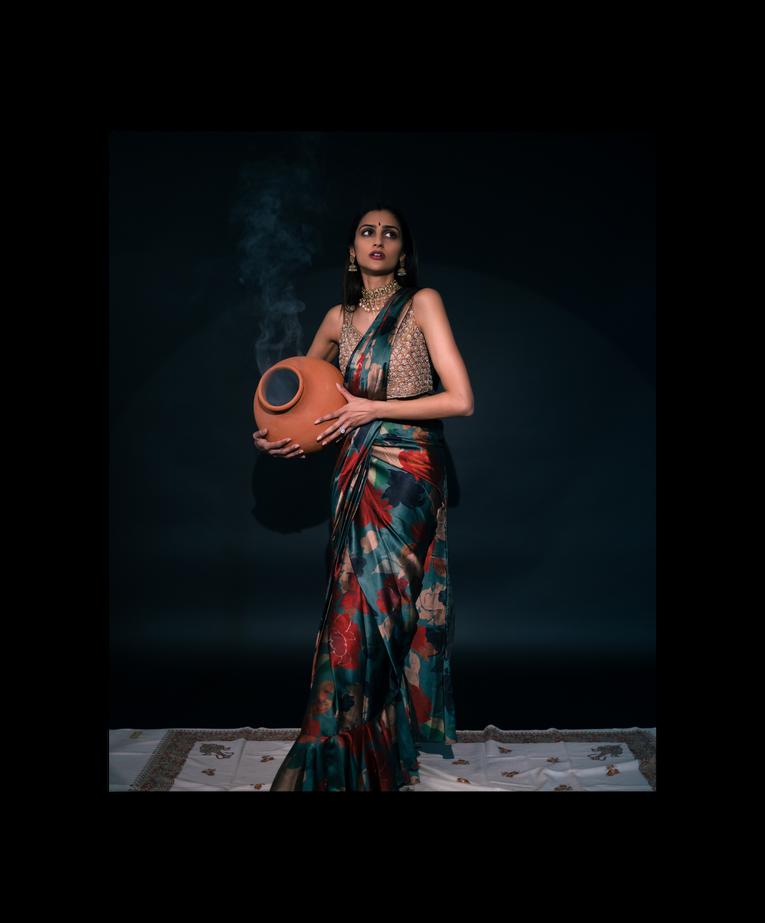
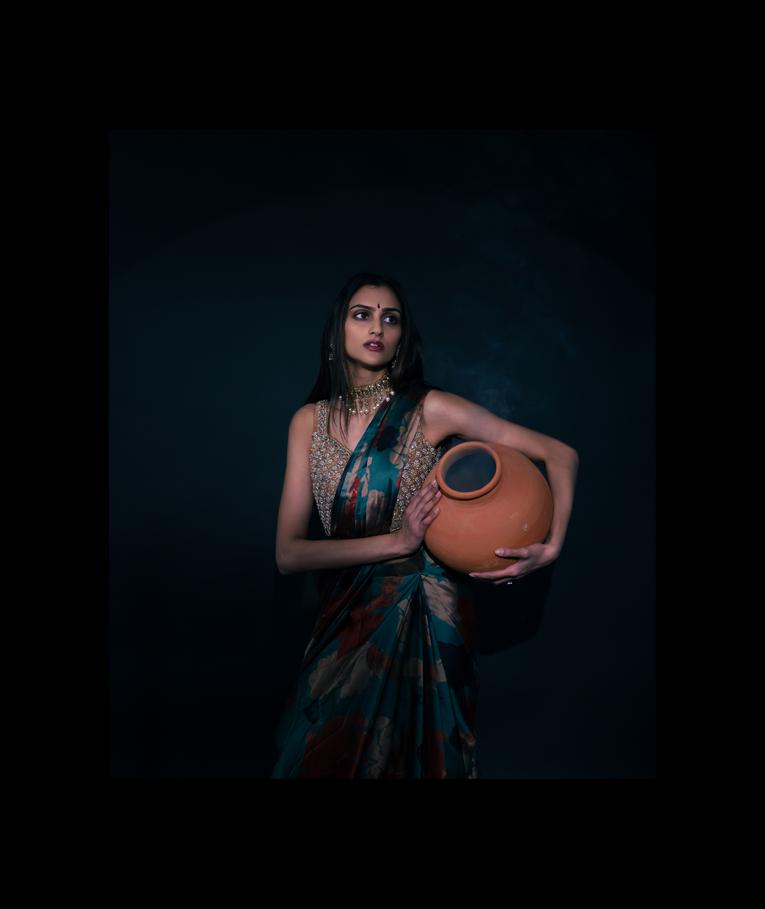

My grandma was also heartbroken when my grandpa passed away. That was her person. So I wanted to be close in proximity to her because she and I were incredibly close We even shared a bedroom growing up So I wanted to be there for my family That was a part of my duty then That time was incredibly challenging, and truthfully, the best option back then for me would have been to take a gap year and to just recover and focus on my health in all senses of the word I hadn't even been given the opportunity to grieve my grandfather's death because it was just go, go, go from then on. So it was a really lonely time, I would say, just like kind of living in your own thoughts. I remember my dorm room being right across from a construction zone I just kept thinking that was the easiest way out That's when my depressive thoughts kind of took a turn for the worst And I would walk by this construction zone every single day, and I kept thinking that it could be the solution to all of this
So I don't really know how I got through the rest of that year, but I was really, really lucky that my dad saw that I hated med school and never wanted me to be a doctor in the first place. He actually is a doctor himself, but he does a lot of administrative stuff, and he works a lot in policy, and he has such a cool way of approaching medicine as a profession I really just wanted to do what he was doing, but he was like, "I don't think that that's the right way " I am so lucky because I had a really close family friend tell my parents being a doctor is a huge waste of that girl's talent If he hadn't said that, and if my parents hadn't shared that with me, I wouldn't be doing what I am today.
I will say that during my master's program, I think a part of my coping mechanism was being almost a stranger to myself There was a really big disconnect between who I was at the time and who I wanted to be I think that looking back on myself in those years and maybe people that knew me at that time, I'm not at all the same person I think I was having a hard time coping with what I was doing - it was a mental strategy for me to be someone other than myself. I'm not fond of who I was at the time. Then I got a job opportunity in New York, and things were starting to look like a new chapter for me. I said, okay, ‘I can become the person I want to be ’ Given the line of work I was in, working in fashion, I kind of had to change my personal style a little bit
The way I was dressing really impacted also how I viewed myself and how I thought of myself It got to the point where I was evolving my style so much that I would look in the mirror, and I didn't even recognize myself. And that's a really scary thing, especially for someone who has struggled with mental health in the past
I still didn't really talk about my struggles with anybody I think my husband and my parents obviously knew that I would go through “ waves of sadness,” is what we called them, where I would have a lot of these depressive symptoms. I would go through these waves, and that would pass after a month, a couple of weeks, and sometimes maybe even a day - very inconsistent amounts of time. I would come back to the girl that you're seeing today
But it got to the point that sometimes those waves were so low and the wave got low enough that I ended up in a hospital - I wasn't safe to myself This was just before the pandemic
I think being in the hospital was really, really tough because I gave my husband my phone when I got admitted, and I said, ‘You can't let people figure out that I'm here.’ You need to keep texting as if I'm still around So I'll never forget it: there was a kid that was depending on me for career advice, and I really wanted to do it, but I was sitting there in a hospital. It's not like my husband can imitate who I am and the advice that I could give
So coming out of that experience, my husband and parents took my mental health more seriously They thought, "We need to be her support system, and we also need to do a better job of learning What are these waves of sadness? What can we do to better support her? How can we help her get out of this?" I should note that these few years, from the time I was in Baltimore through the time I started working in New York, I was modeling very little. It was a very small part of my life, maybe one booking a year, maybe nothing, because my life was school and work So I really wasn't doing anything that made me feel like the best version of myself. It was a time of transformation and change just within my support circle
I tried therapy, and it was not for me - it only brought me more trauma. I just didn't want to rehash everything and tell the story again; I had just spent 4 hours crying, telling this woman my story It got to the point where I had my husband sit in on sessions. I was like, "I'm not filtering anything. He is a fly on the wall Ignore him I won't say anything that's different I may not even say positive things about him I don't know I don't know what's going to come out of my mouth when it comes out of my mouth, but I just want him to understand what's happening here so he can better support me ”
I wanted her to help me find coping strategies and mechanisms, and it kept amounting to nothing She just wanted to keep talking more about what was going on and how I was feeling that week… my husband was like, ‘I now see that this isn't going to be helpful for you ’
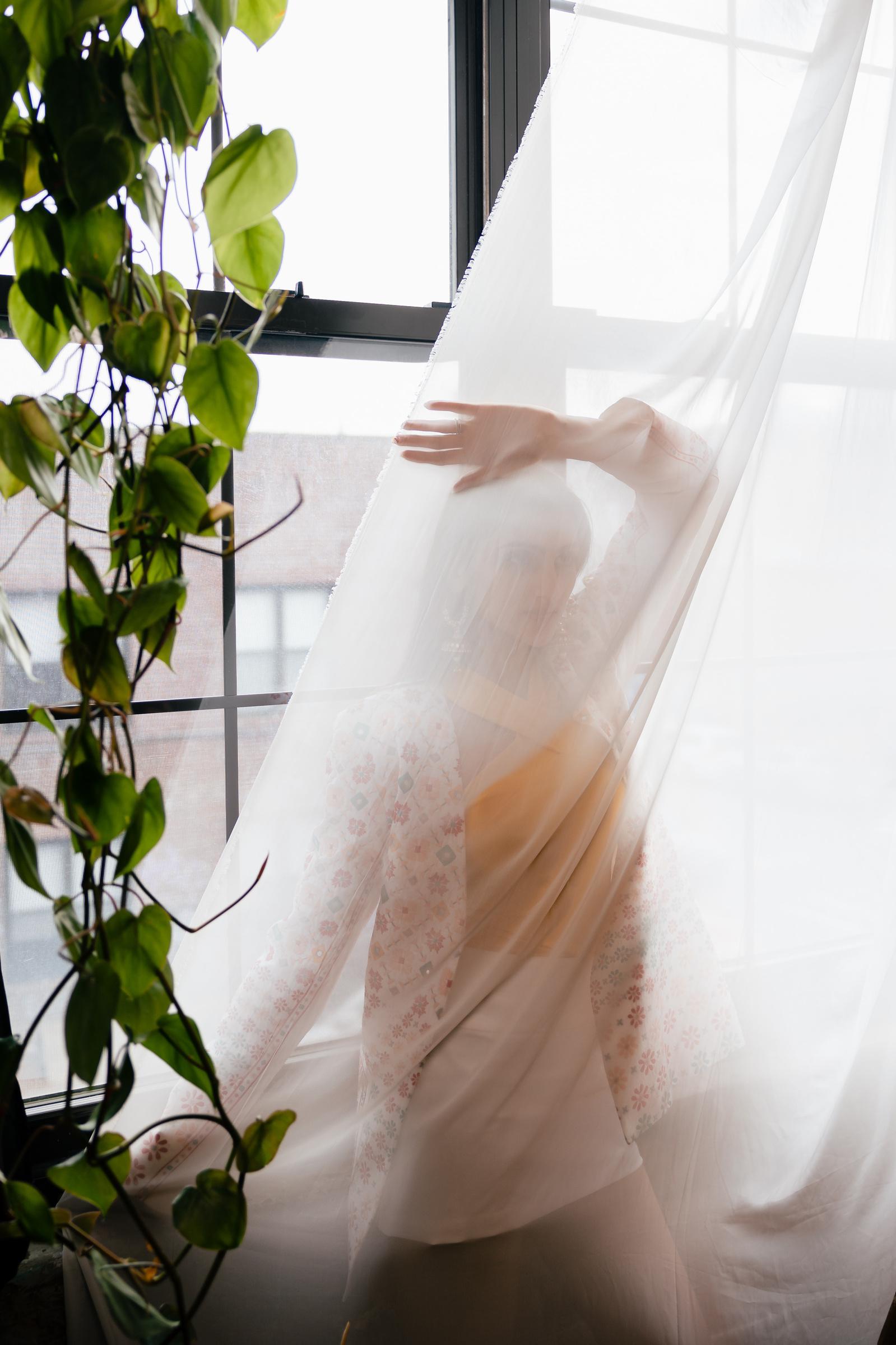
I turned to a few other techniques. One thing that was really beneficial for me was leaning into my spirituality, leaning into a notion of destiny. I know that people have a lot of opinions on astrology, but for me, I love it I found a great astrologer in the UK, Tariq Sultan, that had a really modern approach So he just did a simple birth chart reading, and we started that way Instead of focusing on the present and future, he focused solely on my past He was able to, based on the placements of my planets, tell me my whole past So it was reverse therapy He was like, "During this time, you probably had a lot of car issues. During this time, you may have struggled with your family's health. During this time, you probably had a disconnect in mind, body, and self." Everything that the planets were saying was truthful, and it happened But the beauty of it was that he did not sugarcoat anything for me, and he just gave me a lot of hope for the future
He said, "Look, a lot of people have a lot of bad planets and a lot of bad placements You really only have three coming up for the rest of your life " He was saying that the best is yet to come; the worst has passed. Him sort of saying, “You're through the worst of it,” meant everything to me.
The 5 T's
My husband invented something called the 5 T's And you're going to have to bear with me because some of the ‘T's’ are a little bit of a stretch, but one is, Talk it out Do you need advice, or do you want someone to vent to? Either way, one method is talking it out.
Number two: Tuck in Because my depressive symptoms are so linked to sleeping, I have found that getting tucked in a warm blanket and just taking a nap is sometimes enough for me to get through the day
Number three is a Treat. I smile because there's nothing that makes me happier than a cup of chai. So sometimes, all I need is a treat. You can't underestimate the power of your favorite meal or drink, or just your favorite anything that kind of gives you this sense of comfort and peace
Then there's a Trickaroo, which could just be a trick, but I think Trickaroo sounds cuter It's where you distract yourself from whatever is going on Maybe it's that you jam out to your favorite music or you watch a TV show. Maybe you go somewhere; you do some sort of activity that tricks you and your mind from thinking about what is bothering you.
Number five, and this is the one that's the most ridiculous Tuddle It's a cuddle, but with a T: sometimes, you can't underestimate the value of a big hug My name, Slesha, means to hug or to embrace So I think it's a big part of my personal identity And so we do something called a 360 Tuddle, where he hugs me from all sides. I also have a therapy dog now, Mia, and she comes from a long line of therapy dogs. Whenever I am feeling anxious, she knows it, and she will apply pressure to my chest. She's been trained to do that, but she also started doing it instinctively at a very young age But she's a big part of my mental health journey as well
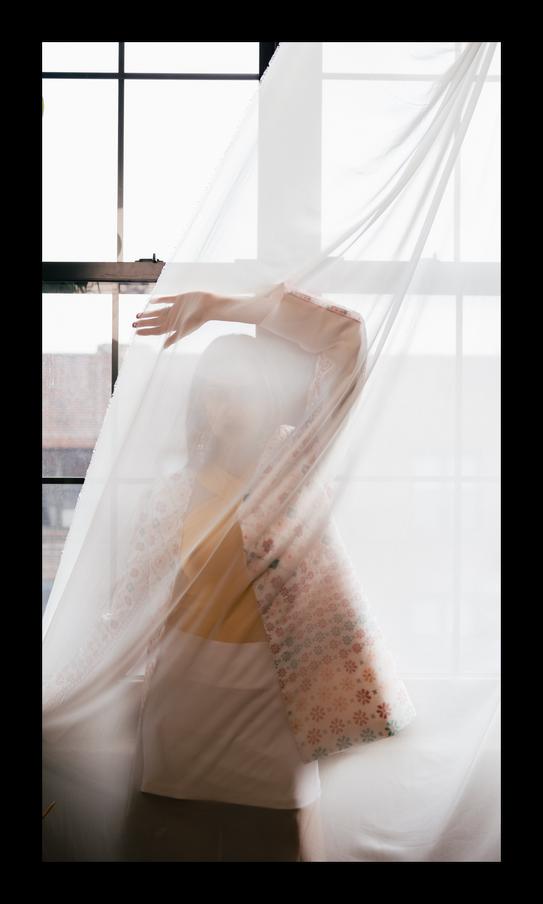
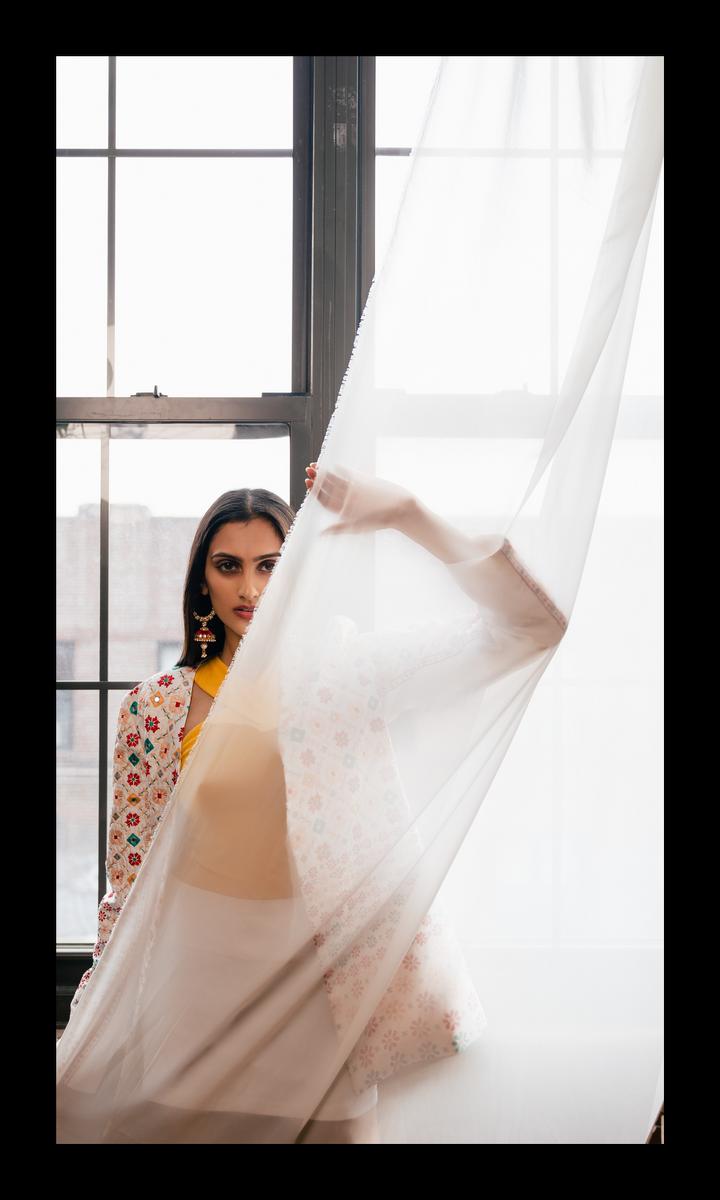
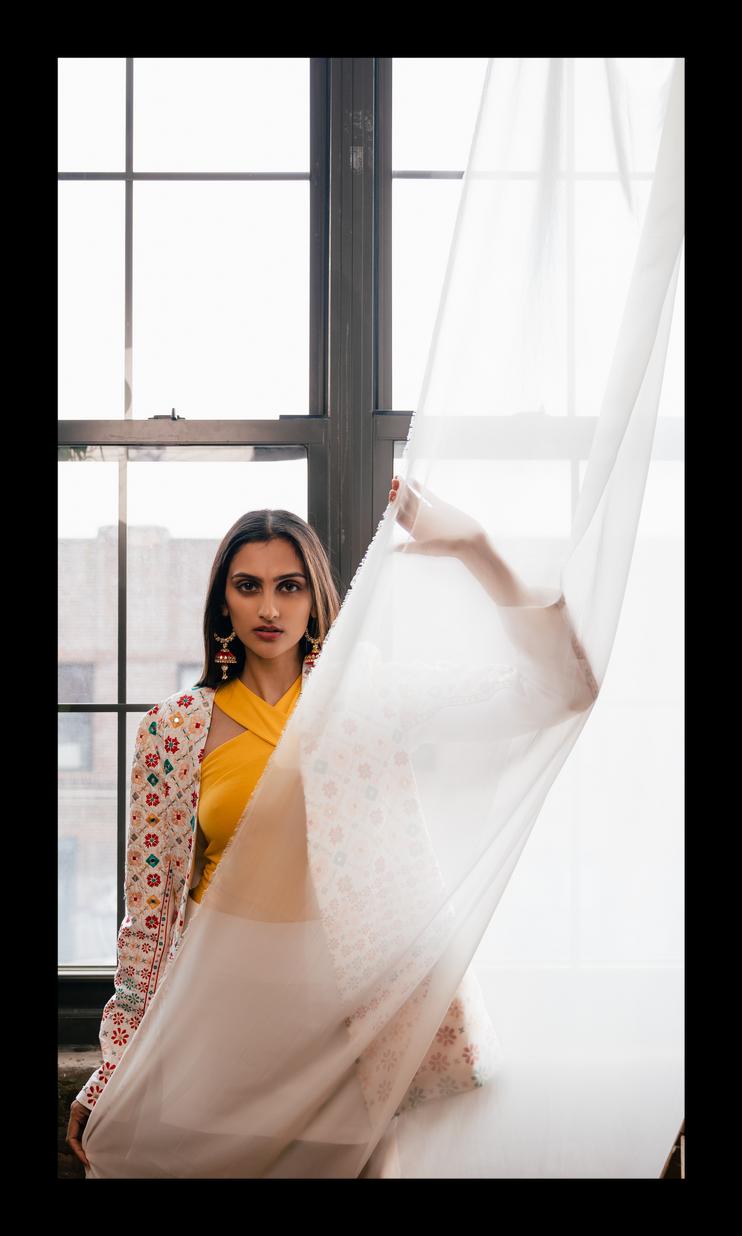
My husband has been instrumental in helping me figure this out He will present all the ideas on the table and help me navigate how I'm feeling about each one: that's how we developed the 5 T's I think when you're struggling with your mental health, your thoughts can get cluttered, and it's really hard to dissect them. He's an engineer by education, so I think he's very gifted in breaking down problems and making them very digestible. He's also a Management Consultant today, so his job is to help fix very complicated problems with millions of dollars on the line I have been really lucky that my life partner, whom I've had since I was in high school, someone that I've been with for 13 and a half years now, almost 14 years, who has seen my whole path and has seen my whole journey knows me well enough to support me in that way because I think he supports me in ways that my parents and friends could never










